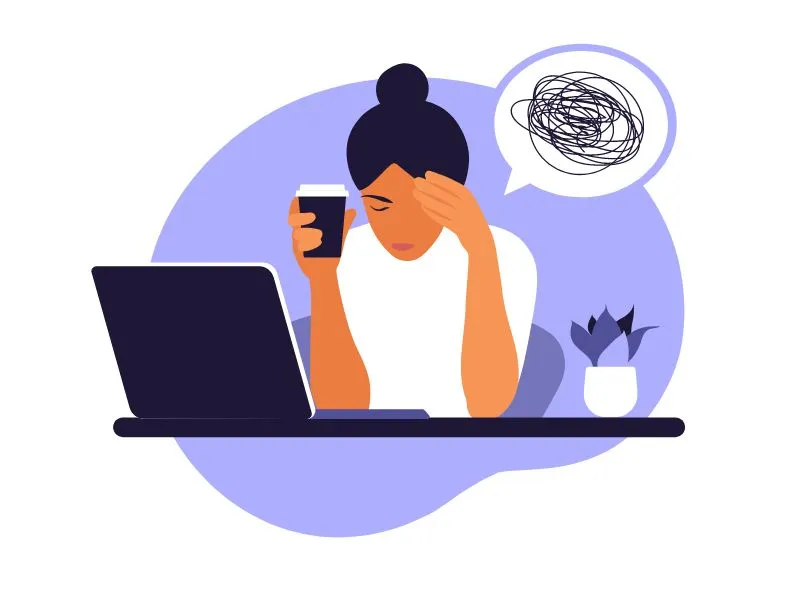Burnout is the outcome of extreme and prolonged stress and depletion on an emotional, physical, and cerebral level. It happens when a person feels exhausted both physically and emotionally and is unable to meet life's ongoing obligations.
The term "therapist burnout" describes the ongoing tiredness that mental health care professionals go through as a result of the demanding nature of their job. It involves emotional exhaustion, depersonalization, and a reduced sense of personal accomplishment. Therapists often face heavy workloads, emotional demands, limited resources, and high expectations, which contribute to burnout. The effects of therapist burnout may be harmful to both the therapist's health and the standard of care given to patients.
Recognizing the signs of therapist’s burnout is essential. Here are some signs of burnout that might be visible in mental health professionals:
Physical and Emotional Exhaustion:
- Feeling tired and drained most of the time, both physically and emotionally.
- Lack of energy and motivation to engage in activities.
- Frequently feeling overwhelmed or emotionally drained.
- Frequent headaches, muscle tension, or other physical complaints.
- Changes in appetite or sleep patterns.
- Weak immune system, leading to increased susceptibility to illnesses.
Increased Negativity and Cynicism:
- Developing a more negative or cynical outlook on work, colleagues, or clients.
- Engaging in frequent complaints or expressing feelings of disillusionment
- Experiencing a loss of satisfaction or fulfillment in your work.
Reduced Performance and Productivity:
- Decreased effectiveness and efficiency in completing tasks.
- Procrastination or difficulty in initiating and completing work assignments.
- Making more mistakes or experiencing a decline in the quality of your work.
Emotional Distress:
- Feeling more irritable, impatient, or short-tempered with colleagues or clients.
- Increased anxiety or worry related to work tasks or responsibilities.
- Experiencing mood swings or emotional instability.
Withdrawal and Isolation:
- Withdrawing from social interactions or activities you previously enjoyed.
- Avoiding work-related social events or gatherings.
- Feeling a sense of detachment or disconnection from colleagues or clients.
Cognitive Difficulties:
- Difficulty concentrating or focusing on tasks.
- Memory problems or forgetfulness.
- Decreased creativity or problem-solving abilities.
It's crucial to remember that merely because you occasionally experience one or two of these symptoms does not mean you are burnt out. However, if you continuously observe multiple of these symptoms over time, it can be a sign of burnout.
There are strategies and approaches therapists can use to avoid feeling emotionally exhausted from work and disengaged from clients such as:
- Manage and reduce your workload
- Research the effectiveness of your work
- Focus on self-care and self-acceptance
- Build supervisor relationships and safe spaces
- Create a personal inventory
- Continue to learn and develop new skills
- Strengthen resilience through mindfulness
If you recognize these symptoms in yourself, it's important to take them seriously and address them proactively. Seeking support from supervisors, colleagues, or mental health professionals can provide valuable guidance and assistance in managing burnout effectively.
Conclusion:
Addressing therapist burnout requires a combination of self-care strategies, seeking support from colleagues and supervisors, and implementing organizational changes to promote a supportive work environment. Early identification of burnout symptoms and aggressive action to address them can support therapists' well-being and enable them to continue offering their patients effective therapy.
We at Solh Wellness provide accessible tools to providers to help them take care of their well being. We also provide an approachable SAAS based platform for mental health professionals for smooth online sessions. Solh Wellness app offers greater mental health management. Download the Solh Wellness App and take a step towards better mental health and better life.



